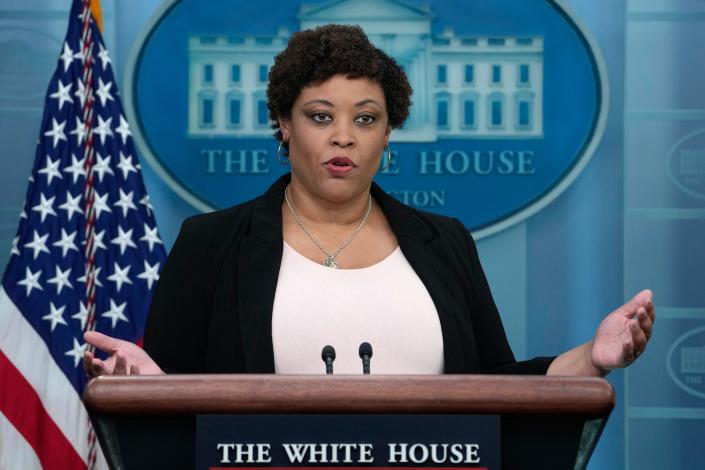WASHINGTON — This is not the clean debt limit bill that President Joe Biden had hoped for.
Either way, the bipartisan deal to suspend the debt ceiling in exchange for spending cuts and policy changes is still a win for Biden on multiple levels.
That keeps the economy on a balanced keel, averting a default that would have been catastrophic for US financial markets and households, potentially dooming his re-election bid.
If Congress approves the package Biden crafted with R-Calif House Speaker Kevin McCarthy, he will also wipe this nasty fight off his plate as he shapes his campaign message.
“The debt limit agreement is stupid public policy, but the worst results have been avoided,” tweeted Dan Pfeiffer, who was a top adviser to President Barack Obama. “For that, Pres. Biden deserves the credit.
But all is not smooth.
If Congress does not agree on how to cut next year’s budget to the spending limits set by the agreement, the federal government could temporarily shut down later this year.
And Biden must be hoping his potentially worse message to progressives will keep them excited about his re-election despite their dissatisfaction with some aspects of the deal.

Here’s a look at the risks and rewards for Biden:
Avoid a catastrophic fault
The economy was a determining factor in the presidential elections.
The federal government’s failure to service its debts, which has never happened before, would shock the stock market, hurting the economy and Americans’ retirement accounts. The credit rating of the United States would be lowered, which would increase borrowing costs for the government and consumers.
These blows, and more, to an economy still struggling to recover from the pandemic would be difficult for Biden to overcome — especially heading into an election year. With inflation still a concern for voters, only about a quarter of Americans polled in March said the economy was doing well. Only 31% approved of Biden’s handling of the economy, according to the Associated Press-NORC Center for Public Affairs Research poll.
While the deal still has to go through Congress, the House was expected to approve it Wednesday night. The Senate is expected to vote by June 5, the earliest date the government may not be able to pay all of its bills.
“I can’t stress enough that we have no margin, no room for error,” Senate Majority Leader Chuck Schumer, DN.Y., said Wednesday. “Either we move quickly and send this bipartisan agreement to the president’s office or the federal government will default for the first time.”
Next debt fight pushed back to 2025
The agreement suspends the limit on how much the federal government can borrow until January 2025. This postpones the next fight until after the 2024 presidential election.
Biden, who had to cut short an international trip to deal with the debt crisis, can now focus on other issues. He may soon, for example, have to find another way to help student borrowers if the Supreme Court blocks his plan to erase $400 billion in student loan debt for tens of millions of Americans.
He also has his hands full with the war in Ukraine, the management of the southern border and the implementation of major political bills that Biden protected from evisceration during debt negotiations.
Moreover, since announcing his re-election bid in April, Biden has yet to kick the campaign into high gear.
Will the progressives revolt?
A potential problem for Biden’s re-election is that progressives lose enthusiasm over the deal.
Rep. Pramila Jayapal, the Washington state Democrat who leads the Congressional Progressive Caucus, told reporters on Wednesday she opposes the package. She called the expansion of the work requirements agreement for food aid “very bad policy” it adds bureaucracy for struggling Americans without achieving the stated goal of encouraging people to work.
“If we want to be credible with the progressive wing of the party, we have to be able to show that we are fighting for them,” Jayapal said on Wednesday.
But while Biden agreed to a scaled-down version of the work requirements sought by Republicans, he also provided exemptions for homeless people, veterans and people aged 18 to 24 who were in foster care at the age of 18.
The nonpartisan Congressional Budget Office estimates that more people, not fewer, will receive food aid once the changes are in place.
Although Biden initially hoped Congress would address the debt limit without preconditions, the administration argues it got the best deal possible in a divided government.
“Negotiations require give and take. Nobody gets everything they want,” said Shalanda Young, Biden’s budget director. “But the president has successfully protected key Democratic priorities and the historic economic progress we’ve made over the past two years.”

Potential government shutdown
With the default ruled out, lawmakers can get back to drafting the 12 spending bills that need to be passed to keep the government running beyond this fiscal year. As an incentive, the deal includes a 1% across-the-board reduction if Congress has not approved annual spending bills by Jan. 1, 2024.
But it will still be difficult for lawmakers to agree on how to enforce the spending limits included in the deal, which would keep nondefense funding levels roughly steady for 2024. And Republicans will seek ways to cut expenses beyond that.
“This is our opportunity,” Rep. Thomas Massie, R-Ky., said of the next steps in the budget process.
Brendan Buck, who worked for two Republican former Speakers of the House, tweeted who tries approving less spending than agreed to in the agreement “would be difficult for the idea of a functioning appropriations process this summer.”
Young, Biden’s budget director, said one of the goals of the negotiations was to set the spending cap at an achievable level.
“Because it’s hard, even in a unified government, to get all 12 bills done,” Young said. “And I think we’re hitting the sweet spot in this deal to give owners the tools they need to get started, unlock that credits process, and have a fighting chance to get the bills paid by October 1. .”
Contributor: Francesca Chambers and Candy Woodall.

This article originally appeared on USA TODAY: Biden scores victory with debt ceiling deal, but government shutdown looms

